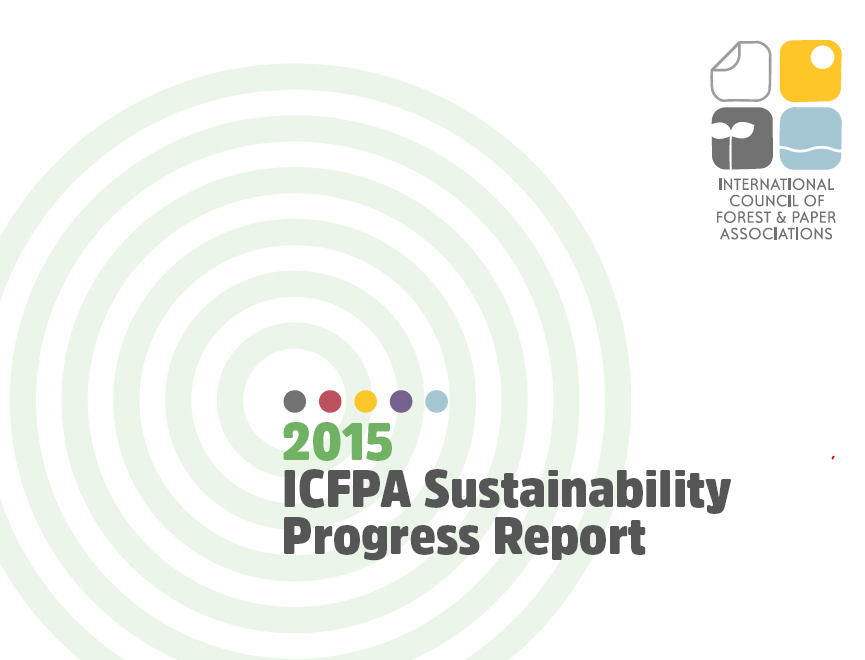 |
||||||||
| May 13, 2015 | ||||||||
| Rick's Tips - Maintaining Your Machine Lubrication System |  |
|||||||
|
∑ Subscribe to Ahead of the Curve ∑ Newsletters ∑ Ahead of the Curve archived issues ∑ Contact the Editor
|
Global forest and paper industry makes progress on sustainability commitments (Editorís note: The following is based on ICFPA news releases of May 5, 2015 and May 6, 2015.) The International Council of Forest and Paper Associations (ICFPA) has released its 2015 Sustainability Progress Report which shows improvements on a range of sustainability indicators and focuses on the industry’s contributions toward a green economy. This report highlights regional and national member associations’ activities and performance related to six commitments made in the 2006 CEO Leadership Statement on Sustainability, and provides an aggregate snapshot of performance. Contributing to the 2015 report are forest and paper industry associations from Australia, Brazil, Canada, Chile, China, Europe, Japan, New Zealand, South Africa, and the United States. According to the report, the global sustainability performance of the forest product industry is improving, with all aggregate indicators for reporting associations showing progress:
Despite some of the improvements, the report also showed that performance in some areas is starting to plateau―reflecting limits to the continued improvements that can be made. For instance, aggregate indicators such as Sustainable Forest Management (SFM) certification, the global recycling rate, sulphur dioxide (SO2) emissions and onsite energy intensity show only minor improvements from the previous report, but reflect the industry’s early actions and ongoing progress. The report also highlights the global forest products industry’s contributions to climate change mitigation, a key topic of the upcoming United Nations Climate Change Conference (COP21) in Paris, France. It also illustrates how the forest and paper industry is supporting a green economy through resource efficiency, carbon sequestration, innovative technologies, bio-based products, and benefiting communities. At their annual meeting on May 5, 2015, ICFPA also released its policy statement on recycling. The global paper recycling rate stands at about 58%. Some developed countries have achieved as high as 70-75%. Many developing countries are establishing infrastructure to help improve paper recycling rates. The ICFPA statement encourages national governments to pursue best practices to enable recovered fiber to find its highest end-use and calls for educating citizens on the importance of recycling, allowing the marketplace to determine recovered fiber’s best end-use, and ensuring functioning waste markets while respecting national contexts and systems. The ICFPA believes that extended producer responsibility (EPR) systems “should not be a preferred choice where existing markets for collections and reuse of recovered paper are efficient and effective.” Instead, improved sorting of waste should be prioritized to increase and ensure the quality of recovered fiber. The ICFPA represents more than 30 national and regional forest and paper associations around the world. Together, its members represent over 90 percent of global paper production and half of global wood production. For more information visit icfpa.org or contact Katharine Eaton at: comm@afandpa.org. Now that you are Ahead of the Curve, stay there by joining TAPPI. |
|||||||
 |
||||||||
